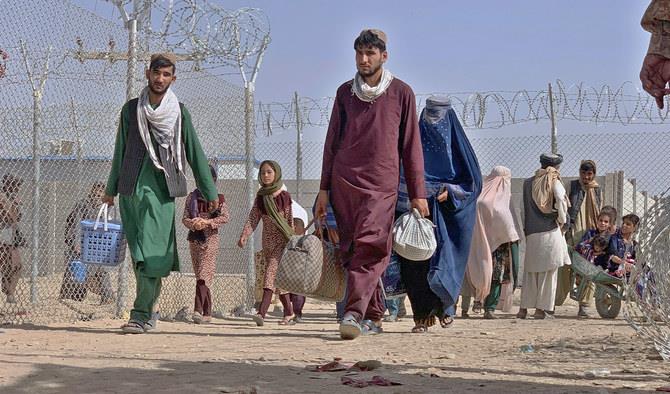
UNHCR Agrees To Provide Support As Pakistan Sets Deadline For Illegal Foreigners' Return
The Pakistani government has issued a deadline of October 31 for the return of illegally staying foreigners, concluding all actions.
In 2006, Afghan refugees were registered, and proof-of-registration cards were distributed. The total number of Afghan citizens holding these cards amounts to 1.33 million. The majority, 52 percent, reside in Khyber Pakhtunkhwa, with over 700,000 in that region. Approximately 330,000 are in Balochistan, 160,000 in Punjab, 70,000 in Sindh, and the remainder lives in Islamabad.
A re-registration was carried out in 2017 under the National Action Plan. The number of Afghan citizens holding an Afghan Citizen Card exceeds 850,000, with an additional 2.2 million legally residing Afghan citizens. An estimated 400,000 to 500,000 Afghan citizens are believed to be without registration through these two processes. Since August 2021, around 700,000 Afghan citizens have entered Pakistan, with many having legal visas. Of these, 100,000 have left for other countries, while 600,000 remain in Pakistan. When accounting for the prior 500,000 and the recent 600,000 arrivals, this totals approximately 1.1 million Afghans residing in Pakistan without legal status.
Also Read: Tragic Murder of Doctor at Qazi Hussain Ahmed Medical Complex in Nowshera
According to Qaiser Afridi, spokesperson for the United Nations Commission for Refugees, many Afghan citizens who arrived after August 2021 cannot return to Afghanistan. UNHCR is prepared to support their registration, providing financial and technical assistance. It is crucial that these individuals are not repatriated, especially considering the challenging human rights situation in Afghanistan, particularly in terms of women's education and employment, impacting journalists, musicians, and various professionals unable to return.
Qaiser Afridi emphasizes that UNHCR has historically provided financial and technical support during registration processes. The organization remains ready to assist in the future.
Concerns have arisen regarding actions taken against Afghan citizens throughout Pakistan. In response, the federal government has instructed all provinces, Gilgit-Baltistan, Azad Kashmir, and Islamabad to refrain from taking actions against registered Afghan refugees. Harassment, detention, or action against holders of the Proof of Registration Card or Afghan Citizen Card should be avoided.
Notably, the Ministry of Saffron, Chief Commissionerate for Afghan Refugees, Interior Secretary Pakistan, Chief Secretaries of Sindh, Punjab, Khyber Pakhtunkhwa, and Balochistan, as well as authorities in Azad Kashmir, Gilgit-Baltistan, and Islamabad have collectively stated that Afghan refugees with valid proof of registration and Afghan Citizen Cards are permitted to remain in Pakistan on a temporary and voluntary basis. Repatriation can be arranged.
It is underscored that repeated instructions have been issued to all relevant stakeholders, including provincial governments. Officers are instructed not to take any adverse actions against legally residing Afghan refugees and Afghan Citizen Card holders, as this could harm Pakistan's positive image.
Dr. Fakhrul Islam, former leader of the Pakistan Study Center at the University of Peshawar, affirms that countries have the right to permit only those with legal documentation to reside on their soil. Millions of Pakistanis legally reside in numerous countries, including Afghanistan. Granting a one-month ultimatum for illegal residents to depart is a sound decision. Pakistan has not signed the 1951 United Nations Convention on Refugees , meaning it is not legally bound to host Afghan refugees. Nevertheless, Pakistan has allowed them to stay for four decades and continues to do so.
As of the first two weeks of October, federal government statistics indicate that 1,530 Afghans have returned to their country. This includes 392 men, 257 women, and 881 children, comprising 152 families who returned via the Torkham border, transported by 49 vehicles.

Legal Disclaimer:
MENAFN provides the
information “as is” without warranty of any kind. We do not accept
any responsibility or liability for the accuracy, content, images,
videos, licenses, completeness, legality, or reliability of the information
contained in this article. If you have any complaints or copyright
issues related to this article, kindly contact the provider above.


















Comments
No comment